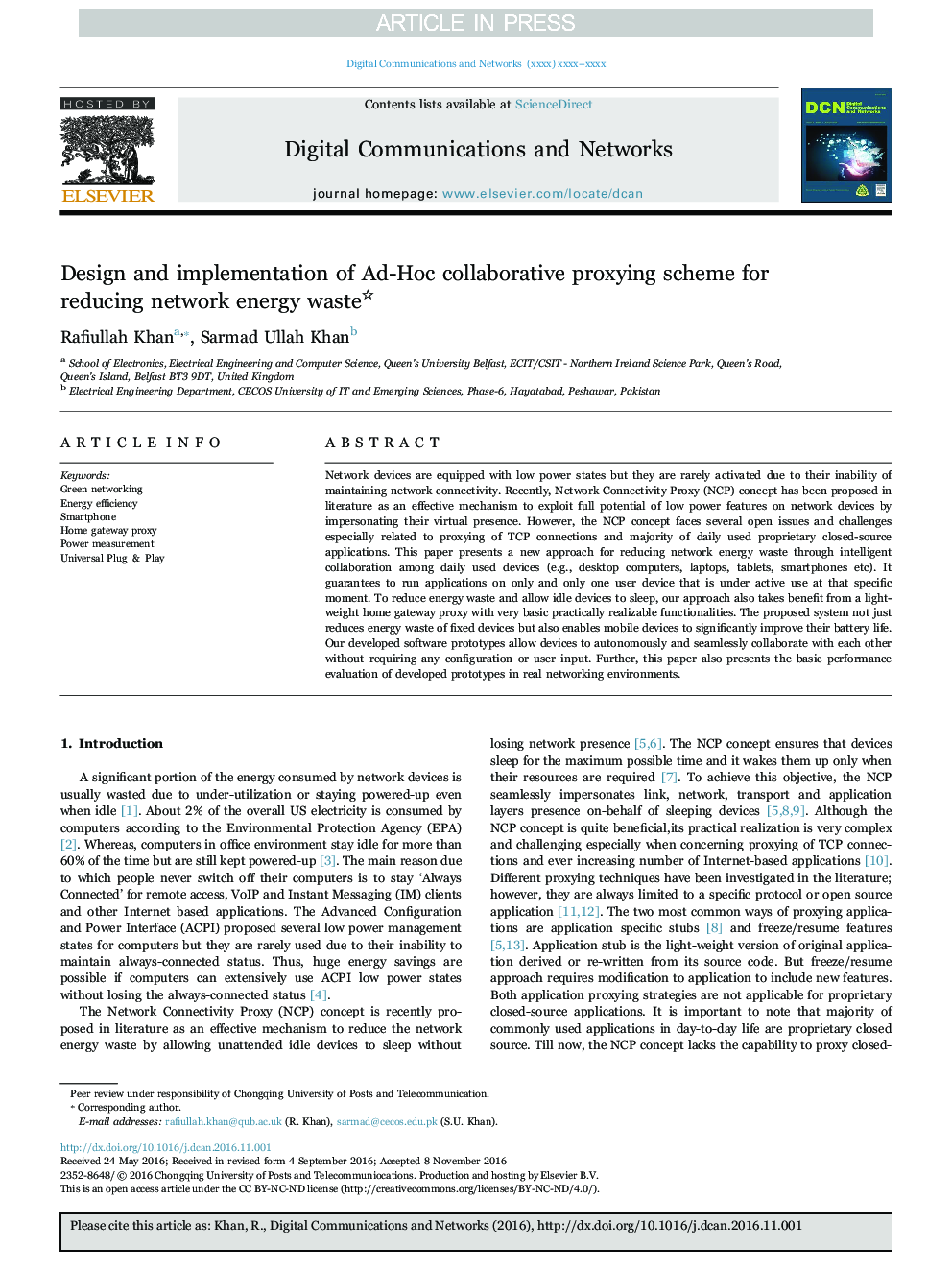| Article ID | Journal | Published Year | Pages | File Type |
|---|---|---|---|---|
| 5000859 | Digital Communications and Networks | 2017 | 11 Pages |
Abstract
Network devices are equipped with low power states but they are rarely activated due to their inability of maintaining network connectivity. Recently, Network Connectivity Proxy (NCP) concept has been proposed in literature as an effective mechanism to exploit full potential of low power features on network devices by impersonating their virtual presence. However, the NCP concept faces several open issues and challenges especially related to proxying of TCP connections and majority of daily used proprietary closed-source applications. This paper presents a new approach for reducing network energy waste through intelligent collaboration among daily used devices (e.g., desktop computers, laptops, tablets, smartphones, etc). It guarantees to run applications on only and only one user device that is under active use at that specific moment. To reduce energy waste and allow idle devices to sleep, our approach also takes benefit from a light-weight home gateway proxy with very basic practically realizable functionalities. The proposed system not just reduces energy waste of fixed devices but also enables mobile devices to significantly improve their battery life. Our developed software prototypes allow devices to autonomously and seamlessly collaborate with each other without requiring any configuration or user input. Further, this paper also presents the basic performance evaluation of developed prototypes in real networking environments.
Related Topics
Physical Sciences and Engineering
Engineering
Control and Systems Engineering
Authors
Rafiullah Khan, Sarmad Ullah Khan,
